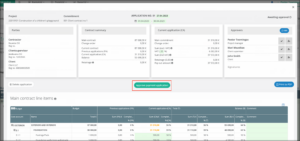Building a house is a major undertaking that involves significant planning, budgeting, and coordination. While most people budget for all the costs that they expect to incur, such as materials, labor, permits, and inspections, unexpected expenses can add up and strain your budget. In this article, we’ll discuss ten unexpected expenses you should be aware of when building a house.
Table of Contents
1. Site preparation
Before construction begins, you need to prepare the site by clearing trees, grading the land, and digging the foundation. However, some site preparation costs, such as removing rocks, stabilizing soil, or dealing with unexpected soil conditions, are hard to predict. For example, if the soil is too soft or unstable, you may need to add additional foundation supports, such as piles, which can be costly.
Depending on the location of your building site and the surrounding area, you may also need to take steps to secure the place and provide access to workers and equipment. This can include installing temporary fencing, hiring security personnel, or paying for road maintenance and repair. These costs can add up quickly, particularly if your building site is located in a remote or challenging area.
2. Building Materials and Supplies
While it’s no surprise that you’ll need to purchase building materials and supplies to construct your home, the cost of these items can quickly add up. In addition to the basic materials like lumber, roofing, and insulation, you may need to purchase specialized items like windows, doors, and plumbing fixtures. It’s also important to factor in the cost of delivery, which can be substantial for more significant or remote building sites.
3. Utility connections
When you build a new house, you must connect it to the utilities, such as water, electricity, gas, and sewage. However, the cost of utility connections for new construction can vary widely depending on your location, distance from the nearest utility lines, and the type of utility connections you need. For example, if your house is in a rural area, you may need to install a septic system or a well, which can be expensive.
4. Change orders
Change orders are requests for changes to your home’s original plans or specifications. While it’s natural to want to make changes or upgrades as you go along, these changes can add significant costs to your project. For example, if you decide you want a different type of flooring or a larger bathroom, you may need to pay for additional materials and labor. To avoid unexpected costs related to change orders, it’s important to plan as much as possible before construction begins and to be clear about your expectations with your contractor.
5. Permit fees
Building a house requires obtaining various permits and approvals from the local government, such as building permits, zoning permits, and environmental permits. However, the actual cost of permit fees can vary widely depending on your location, the size and complexity of your project, and the type of permits you need. For example, if your project requires environmental assessments, you may need to pay additional fees.
6. Contingency fund
A contingency fund is an extra budget that you set aside to cover unexpected expenses or unforeseen events, such as delays, material shortages, or weather-related issues. A good rule of thumb is to budget around 10% to 20% of the total construction cost for a contingency fund. However, the actual amount may vary depending on your risk tolerance and the project’s complexity. Having a contingency fund can give you peace of mind and protect your budget from unexpected expenses.
7. Landscaping
After the construction, you’ll need to landscape your yard to enhance its appearance and functionality. Landscaping costs include grading, planting, irrigation, and hardscaping, such as pathways and retaining walls. However, the cost of landscaping can add up quickly, especially if you have a large or complex yard or want to add custom features.
8. Appliances and fixtures
When you build a new house, you’ll need to purchase and install appliances and fixtures, such as kitchen appliances, bathroom fixtures, lighting, and heating and cooling systems. However, the cost of appliances and fixtures can vary widely depending on your preferences, quality standards, and energy efficiency ratings. For example, high-end appliances can be expensive but can save you money in the long run by reducing energy bills and increasing durability.
9. Insurance
Building a house is a significant investment, and protecting it from potential risks, such as fire, theft, or natural disasters, is essential. Therefore, you’ll need to purchase insurance to cover your house during construction and after moving in. However, the insurance cost can vary depending on your location, the value of your property, and the level of coverage you need. Therefore, shopping around and comparing insurance policies is essential to find the best deal.
10. Delays
Delays can occur at any stage of the construction process and can be caused by various factors, such as weather, material shortages, contractor availability, and design changes. Delays can be costly as they can increase labor and material costs, extend the construction schedule, and delay your move-in date. Therefore, having a contingency plan and budget for potential delays in your construction schedule is essential.
11. Post-construction expenses
After you move into your new house, you’ll need to budget for ongoing expenses, such as property taxes, homeowners’ insurance, maintenance, repairs, and upgrades. These expenses can vary widely depending on your location, the size, and age of your house, lifestyle, and preferences. For example, if you have a large yard with a swimming pool or high-maintenance landscaping, you may need to budget more for maintenance and repairs.
Conclusion
Building a new home is an exciting process, but it can also be stressful and expensive. Unexpected costs can quickly add up and affect your overall budget if you’re not prepared. In this blog post, we’ve discussed some of the most common pre-construction, construction, and post-construction costs that you may encounter when building a new home.
By understanding these hidden costs and budgeting for them, you can ensure that your dream home doesn’t turn into a financial nightmare. It’s important to research the cost of materials, labor, and permits in advance and build in a buffer for potential price increases or changes to your building plans. Additionally, setting aside a contingency fund can help you cover unexpected costs and ensure that you’re not caught off guard.
Finally, it’s important to work with a reputable contractor and keep the lines of communication open throughout the construction process. This can help you avoid potential delays, change orders, or other unexpected expenses that can add up quickly.
In summary, building a new home can be a complex and expensive process, but by understanding and budgeting for potential costs, you can save money and can ensure a smoother and more enjoyable experience. By doing your research, working with reputable contractors, and planning ahead, you can build your dream home without breaking the bank.
Related posts
Read our other articles where you can find useful and relevant information about building your own home:
About the Author

Taavi Kaiv
Taavi Kaiv is a construction specialist with over ten years of experience in the construction industry. Taavi is an accomplished construction project manager with many successful projects that have been completed under his guidance. Taavi holds a master’s degree in construction management from the Tallinn University of Technology. View profile





